Ready for PLANET ENGLISH

STUDENT’S BOOK & WORKBOOK

The pleasure of learning






The pleasure of learning



The interactive Digital Book contains:
• interactive exercises with automatic marking
• audio tracks for listening

• videos and animations
• interactive, educational games
• user-friendly e-book version with high readability that allows students to change the font and size of characters, line spacing and the background colour mode of the pages.
To download the Digital Book, visit www.elionline.com/digitalbooks, follow the instructions and insert the code:

Scan the QR code to access the video tutorial




Download the App from App Store for iOS or from Google Play for Android.
Frame the page of your book.
Access the content and download.


• A fun two-page quiz on the grammar, vocabulary and structures studied in the previous level
research in the UK 40%, of people said they had a sense of time passing more slowly than usual, while another 40% felt it was moving faster. Both experiences could lead to feelings of stress and anxiety. The 20%, who experienced no change were perhaps essential workers. Keeping fit and healthy has also changed since the start of the pandemic. Gyms, swimming pools and other sports facilities closed and for a while many of us could only leave the house for very limited reasons and amounts of time. So like everything else exercise suddenly became an at-home activity, with Reading 1 Read the text and underline examples of: Present simple Present continuous Modal verbs Past simple Past continuous Present perfect How the world has changed since the pandemic 2 Read the text again and choose the correct option (A, B or C). 1 One of the main changes to our lives has been from home. A studying B working C working and studying 2 People found better A balance B jobs C places to live 3 Many people have experienced differently.A light B space C time 4 We have we turned our gardens into garages B gyms C schools 5 What has become more important to us? A friends nature C social media
gardens, garages and living rooms turned into personal workout spaces. There are also now more online health services available. In a year in which we learned about social distancing and quarantine, many people turned to nature for a sense of peace and well-being. This has helped with some of the mental health issues caused by our forced isolation. But social media has still been the main way of keeping us connected. Particularly TikTok, it seems, which has provided much needed entertainment during lockdowns. Our shopping and eating habits are different now too. As supermarkets ran out of essential goods, and restaurants and cafes closed, many of us started ordering online groceries, food from local suppliers and takeouts 6 How have we changed our eating habits? n By cooking at home. n By eating more junk food. C n By eating more healthily. 3 Answer these questions about your own experiences. 1 What were the main changes for you during the pandemic? 2 Which did you like and which didn’t you like? 3 Have you continued doing any of these new things? If so what and why? What new things did you try or discover during lockdown? 5 What did you miss during lockdown? 6 Has there been a ‘ticking time bomb for inequality’ in your society? Where can you see it? Answers C 2 C 4 B 6 A
• Each unit opens with a topic-related photo
• Fact: information and statistics stimulate thought and discussion
• The Big Question: Students give their opinion, individually or in small groups
• A list of unit objectives is given at the bottom of the page






Presentation 1
• Lexical approach
• Motivating topics of global interest
• Reading Comprehension activating vocabulary and grammar structures in real contexts
• Grammar boxes with links to the Grammar Reference & Practice, followed by simple practice exercises
• Speaking tasks to activate key competences
Presentation 2
• The second input takes the form of an interview or a report in a certification-style listening text
• Activation of the second grammar point
• Oral production which aims to develop Critical Thinking skills
Vocabulary & Listening

• A detailed study of vocabulary, with tasks aiming to aid comprehension and learning
• An in-depth look at word formation, phrasal verbs and collocations
• Oral comprehension tasks with vocabulary in context
Language Skills
• A double page spread of skills practice: Reading, Listening, Speaking and Writing
• The symbol CERT indicates that it is an exam practice activity for external certification

Grammar Lab
• A page dedicated to grammar practice with links to Grammar Reference & Practice


Video & Global Skills


• Socio-cultural topics are explored through authentic videos, which aim to stimulate class discussions

• Life & Global Skills are presented through a detailed and guided pathway
Learn to Learn
• Strategies to improve presentation and production, and to increase fluency and self-confidence in English

• Revision tasks for vocabulary, grammar, phrasal verbs, word formation, collocations, which are ideal preparation for the B2 First for Schools certification Use of English paper

• Practice section for the different types of written tasks present in international certification
Grammar Reference & Practice
• Concise, clearly presented and labelled grammar tables

• Watch out! boxes highlighting exceptions and common grammar errors

• Links to specific practice exercises for target structures
15 Audio tracks you can listen to on the DIGITAL BOOK or downloadable with the ELI LINK app Video on the DIGITAL BOOK or downloadable with the ELI LINK app CERT Preparation for external certification
The DIGITAL BOOK is an interactive and digital version of the text book, to be used in class on an interactive whiteboard (IWB), or at home for independent study.


Presents the whole book in browsable multimedia form and brings all the course resources together in one place: interactive exercises and self-correction, audio and video All the videos have subtitles.
Accessible intuitive tasks.
The DIGITAL BOOK provides extra resources:
• direct access to the dedicated website where you will find further resources related to the topics of the course

• Culture videos with worksheets





• An interactive table with audio English phonetic symbol pronunciation
You will be able to add notes, documents, pictures, links and voice memos to your digital book from the toolbar. It will also be possible to create minds maps to help learn and revise key concepts.
There is a karaoke function with every audio track.
Unit
1 Sports & Free time p. 11
Grammar
Present simple Present continuous Stative verbs
Verbs + infinitive or -ing form
2 People & Relationships p. 21
3
Vocabulary & Listening
Free-time activities
Sports equipment and venues
Past simple Present perfect simple and continuous Subject and object questions
How Are You Feeling? p. 31
4 A Changing Society p. 41
Past perfect simple and continuous used to / would
Friendship and relationship expressions
Collocations and phrasal verbs relating to relationships
Feelings and emotions
Life events
Phrasal verbs with up
The passive have/get something done
Jobs and professions
Crime and criminals
Phrasal verbs with come
5 Fashion and Design p. 51
Modal verbs for obligation/necessity and advice
Modal verbs for deduction and degrees of certainty
Modal verbs in the past
Grammar Reference & Practice pp. 62-71
Writing Bank pp. 72-76
Fashion and clothes
Clothes shopping
Expressions and phrasal verbs with keep
A very active life I love sports!
Life Skills: Know yourself
Learn to be more self-confident
Reading: A text about adventure sports in Queenstown
Listening: Talking about rafting
Speaking: Describing a picture using prompt questions
Writing: An email on extreme sports
Multiple choice cloze: Lockdown hobbies
Key word transformation
Make a difference!
Volunteer hairdresser
Life Skills: Respect Others
Consider other people’s needs and preferences
Emotions are OK
Ben’s vlog
Life Skills: Know Yourself
See things in a positive way
Reading: Are we born leaders?
Listening: A girl’s podcast
Speaking: Talking about family relations
Writing: Describing what has been happening
Learn to Learn Oral interviews
Reading: What is self-esteem?
Listening: Abraham Maslow’s best-known theory
Speaking: The Rosenberg test
Writing: A brief biography
Learn to Learn Writing narrative texts
Multiple choice cloze: How Technology Has Changed
Our Relationships
Key word transformation
Gapped text: The most important event in my life!
Key word transformation
Cops on the job
PC Louis and PC Rossi’s job
Life Skills: Communicate and cooperate
Working in a team
Our clothes
Ade’s experience in Ghana
Life Skills: Get thinking
Dealing with peer pressure
Reading: A passage from Oliver Twist
Listening: An extract from Oliver Twist
Speaking: Presenting a report
Writing: A book review
Learn to Learn Writing book reviews
Reading: The best places to study fashion
Listening: Short dialogues about fashion and clothes shopping
Speaking: The most important skills in the fashion industry
Writing: An online review of a store
Learn to Learn Writing reviews
Key word transformation: Excellent Career Opportunity in Hospitality
Punctuation & Phonetics p. 77
Audioscripts and videoscripts pp. 78-86
Gapped text: Jeans
Multiple choice cloze: My Personal Stylist
1 You are looking for gas for your car. Where do you go?
6 Read the description and decide which animal it is.
It is the biggest and heaviest mammal in the world, but it can swim very well.
A n crocodile
B n elephant
C n shark
D n whale
7 Which of these types of extreme weather might you find in the mountains in winter?
A n avalanche
B n drought
C n heatwave
D n hurricane
A n drugstore
B n filling station
C n grocery store
D n laundromat
2 Read this text message and choose the best answer.


Joe I’m taking the bus to school. Where are you?
A n Joe doesn’t usually take the bus to school, but his friend does.
B n Joe goes to school by bus every day with his friend.
C n Joe is on the school bus today, but doesn’t know where his friend is.
D n Joe is waiting for his friend so they can catch the bus together.
3 What were the women who fought for votes and rights called?
A n Amazons
B n Pioneers
C n Rebels
D n Suffragettes
4 If you want to do a thing without people knowing, how do you do it?
A n openly
B n quickly
C n secretly
D n suddenly
5 Where in a wildlife park would you find a lizard?
A n Amphibian zone
B n Big mammals
C n Insect house
D n Reptile house
8 Choose the message that a climate action group might have on a banner.
A n Anybody take action on climate change before it is too late!
B n Everybody take action on climate change before it is too late!
C n Nobody take action on climate change before it is too late!
D n Somebody take action on climate change before it is too late!
9 Read the professional kitchen rule and decide what it means.
You mustn’t bring any personal items or outdoor clothes into the kitchen area
A n Personal items and outdoor clothes are not necessary in the kitchen.
B n Personal items and outdoor clothes are totally prohibited in the kitchen.
C n You are not prohibited from bringing personal items and outdoor clothes into the kitchen, but it’s better not to.
D n You are not obliged to bring your personal items and outdoor clothes into the kitchen.
10 Which job advertisement suits a person who wants to work and study?
A n Full-time, temporary positions as Christmas delivery drivers available with our company…

B n This flexible, part-time position would suit a wellorganized person looking for experience in publishing…
C n We are advertising three well-paid positions as full-time marketing executives at…
D n Would you like a challenging and rewarding career in teaching? Then why not…
11 Read the sentence and choose the best answer.
Joe has already met Alice’s family.
A n Joe doesn’t know Alice’s family.
B n Joe met Alice’s family a long time ago.
C n Joe met Alice’s family at least once in the past.
D n Joe met Alice’s family for the first time yesterday.
12 Which of these people are most likely to go on a honeymoon?
A n A couple who just got married.
B n A couple who just got engaged.
C n A couple who just retired.
D n Two students who just graduated.
13 Read the sentence and choose the correct answer.
Julia has played tennis for six years.
A n Julia played tennis in the past, but now she doesn’t.
B n Julia started playing tennis aged six and plays it now.
C n Julia stated playing tennis aged six and then stopped.
D n Julia started playing tennis six years ago and plays it now.
14 When do you wear goggles and a wetsuit?
A n To go diving underwater in the sea.
B n To go ice skating on a cold winter’s day
C n To go swimming in an indoor, heated swimming pool.

D n To protect you when you are playing hockey on a wet day.

15 What do you have an x-ray for?
A n To find out if you have a broken bone.
B n To find out if you have a bruise.
C n To find out if you have an allergy.
D n To find out if you have the flu.
16 ‘We should live more sustainably’ is
A n a government rule.
B n a good piece of advice.
C n something another person needs us to do.
D n something we know is right to do.
17 Choose the correct sentence.
A n This is the laboratory where developed the vaccine.
B n This is the laboratory who developed the vaccine.

C n This is the scientist that developed the vaccine.
D n This is the scientist which developed the vaccine.
18 What is the study and application of very small things?
A n biology
B n chemistry
C n nanotechnology
D n physics.
19 Choose the correct passive form for the following active sentence.
Theodore Levitt first used the term globalization in a 1983 Harvard Business Review article.
A n The term globalization was first to use Theodore Levitt in a 1983 article.
B n The term globalization was first used by Theodore Levitt in a 1983 article.
C n The term globalization was first used to Theodore Levitt in a 1983 article.
D n The term globalization was first used by a Harvard Business Review article in 1983.

20 Which is the correct definition of crowdfunding?

A n Getting people to like and follow you online through social media.
B n Raising money for a project or campaign online.
C n Supporting projects in developing countries.
D n The same TV programs, clothes, music and food available all over the world.
1 Read the text and underline examples of:
• Present simple
• Present continuous
• Modal verbs
• Past simple
• Past continuous
• Present perfect
One of the main changes to our lives during the pandemic was working and studying from home. Companies, schools and colleges worldwide had to shut, sometimes very suddenly and for a long time. At first it seemed great to be able to avoid the cost and stress of the morning commute. People found better work-life balance, which many would like to keep. But very quickly it showed what one economist has called a ‘ticking time bomb for inequality.’ Workers in areas like hospitality and tourism lost their jobs. Children from poorer families couldn’t access online learning and didn’t have their own rooms or devices to do school work.
Our sense of time has changed too. When COVID-19 unexpectedly entered our lives, it separated us from the routines and events that usually structure our lives: work, school, social events, holidays etc. Without these things we’ve experienced time differently. In research in the UK, 40% of people said they had a sense of time passing more slowly than usual, while another 40% felt it was moving faster. Both experiences could lead to feelings of stress and anxiety. The 20%, who experienced no change were perhaps essential workers. Keeping fit and healthy has also changed since the start of the pandemic. Gyms, swimming pools and other sports facilities closed and for a while many of us could only leave the house for very limited reasons and amounts of time. So like everything else exercise suddenly became an at-home activity, with
2 Read the text again and choose the correct option (A, B or C).
1 One of the main changes to our lives has been from home.
A studying B working
C working and studying
2 People found better . A balance B jobs
C places to live
3 Many people have experienced differently.
A light B space C time
4 We have turned our gardens into A garages B gyms C schools
5 What has become more important to us? A friends B nature C social media
gardens, garages and living rooms turned into personal workout spaces. There are also now more online health services available.

In a year in which we learned about social distancing and quarantine, many people turned to nature for a sense of peace and well-being. This has helped with some of the mental health issues caused by our forced isolation. But social media has still been the main way of keeping us connected. Particularly TikTok, it seems, which has provided much needed entertainment during lockdowns.
Our shopping and eating habits are different now too. As supermarkets ran out of essential goods, and restaurants and cafes closed, many of us started ordering online groceries, food from local suppliers and takeouts from home delivery services. But because of food shortages and lack of money, a new generation of home cooks was also born during the pandemic.
6 How have we changed our eating habits?
A n By cooking at home.
B n By eating more junk food.
C n By eating more healthily.
3 Answer these questions about your own experiences.
1 What were the main changes for you during the pandemic?
2 Which did you like and which didn’t you like?
3 Have you continued doing any of these new things? If so what and why?
4 What new things did you try or discover during lockdown?
5 What did you miss during lockdown?
6 Has there been a ‘ticking time bomb for inequality’ in your society? Where can you see it?
Vocabulary & Listening Grammar Language Skills
● Free-time activities
● Sports equipment and venues

● Present simple
● Present continuous
● Stative verbs
● Verbs + infinitive or -ing form
Reading: A text about adventure sports in Queenstown
Listening: Talking about rafting
Speaking: Describing a picture using prompt questions
Writing: An email on extreme sports
Video & Life Skills
I love sports!

Know yourself:
● Learn to be more self-confident
Vocabulary: Free-time activities
1 Match the expressions to the pictures.
1 n jewelry making
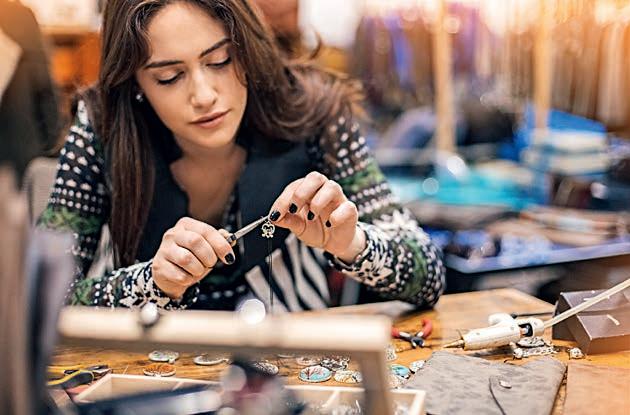
2 n astronomy
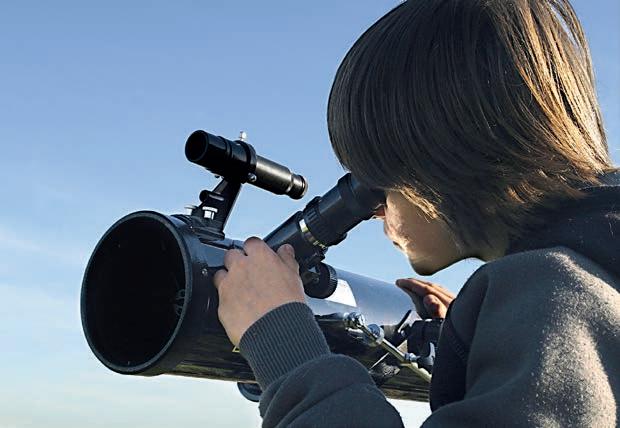
3 n flying a drone
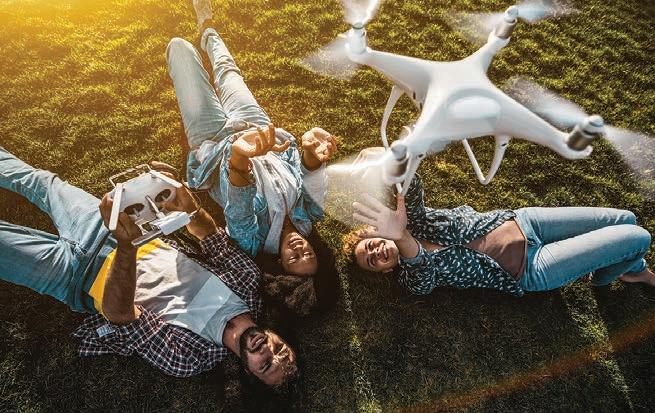
4 n photography
5 n camping

6 n hanging out with friends
2 1 Listen and check.
3 Complete the sentences with a word or phrase from exercise 1.
1 I started doing when I was six because I loved wearing my mom’s necklaces and bracelets.
2 is my passion! I take photos of everything!

3 I love with my friends on a Saturday evening.
4 is amazing! I just love watching the stars at night.
5 My friends and I like going in the woods at the weekend.
6 on top of a mountain is fantastic!
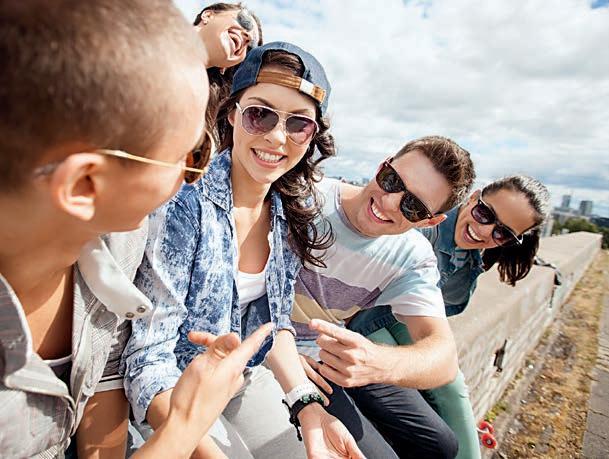
4 Read the text. Who is changing their hobby to a job?
Are you ever a bit bored in your free time? What do you usually do? Listen to music, play football, collect stamps... ?! Do you fancy doing something a bit more interesting? Well, here are some new ideas for you ... we talked to five friends in Los Angeles, and some of their hobbies are really fun!
I’m into astronomy. I love looking at the stars and studying the moon. I have a new telescope which I use every night. I’m studying Mars at the moment: did you know that since 2003 we have sent 3 rovers to explore the planet? I want to start my own blog about the “Red Planet” – the pictures sent by Perseverance Rover are stunning!...
ChrisI love camping! I’m a scout, so we often go camping at the weekends and during the holidays. We’re planning a trip to Topanga State Park during the Easter holidays. I love the freedom of being outside, sleeping under the stars and cooking outside my tent. We sometimes go to a campsite, but we often just camp wherever we stop!
LukeI make jewelry. I’ve always loved jewelry! I started making necklaces and earrings for my friends’ birthdays when I was a child, but I do jewelry making all the time now. I’m making lots of new pieces at the moment because I have a stand at the local market on Saturdays ... about 20 necklaces are sold every Saturday! Maybe one day, I could have my own jewelry shop!
MelanieI just love hanging out with my friends in my free time. We do loads of things... anything really: from traveling together to doing up our own bikes – we hate not seeing each other! At the moment, we’re into flying our drones so we often go to the park to fly them. Another thing we love doing is going to music festivals in the summer. I’d really love to go to the Coachella Festival, but Mom says I’m too young to go!
DavidPainting, that’s my new hobby. I started painting at school in art class, but now I do it at home too. I usually paint still lifes, fruit and flowers and things, but I’m learning to do portrait painting too. I’m painting a portrait of my grandmother at the moment – it’s a surprise for her 80th birthday!
SonyaWe sometimes go to a campsite. I’m studying Mars at the moment.
I usually paint still life but I’m learning to do portrait painting too.
5 Read the text again and decide if the sentences are true (T) or false (F).
1 The people interviewed say they’re bored in their free time.
2 Chris uses his telescope to learn about the stars and planets.
3 Luke doesn’t always camp at a campsite.
4 Melanie doesn’t have a jewelry shop.
5 David went to the Coachella Festival last weekend.
6 Sonya’s grandmother knows that Sonya’s painting her portrait.
We use the Present simple to talk about regular actions, habits and routines, permanent situations, facts and general truths. We often use adverbs of frequency with the Present simple: never, rarely, sometimes, often, always.
We use the Present continuous to talk about activities in progress at the time of speaking and temporary situations.
Grammar reference p. 62
6 Pairwork Ask and answer the questions.
1 What do you do in your free time?
2 Do you have any hobbies?
3 Are you learning anything new at the moment?
4 How do you feel about it?
1 What do you usually do during the summer vacations? Are there any sports camps in your area?
2 2 Listen to the conversation between Jake and Andrew and answer the questions.
1 What do they need to do to before going to the sports camp?
2 How long do they want to go for?
3 2 CERT Listen again and answer the questions.
1 What are Jake and Andrew talking about?
2 Why does Andrew’s dad practice cricket a lot?
3 What has Andrew’s uncle promised to do?
4 What does Jake think about climbing?
5 Who runs every morning?
6 What does Andrew need to do before completing the application form?

Grammar: Verbs + infinitive or -ing form
Stative verbs, describing a state rather than an action, are not usually used in the continuous form. Stative verbs include: verbs for feelings and emotions (want, hate); verbs for senses (see, hear); verbs for thoughts and opinions (know, think); and verbs for possession (have, own).
4 Complete these sentences about you.
1 My family enjoys on holiday.
2 A group of my friends is planning this summer.
3 I always remember when I was a child.
4 Do you know what I hate in my free time: !
Both (no change of meaning)
5 Dad is offering this weekend.
Verb + infinitive Verb + -ing form
enjoy, fancy, don’t mind, can’t stand
like, love, hate, prefer, start
Both (change of meaning) decide, hope, need, offer, plan, promise, want
forget, go, mean, regret, remember, stop, try
6 I try when I can’t sleep.
5 Critical Thinking When you choose a sport what is more important 1-10? Compare your ideas in small groups.
challenging • relaxing • social • competitive dangerous • indoors • outdoors • special clothing cost • fitness
1 Match the sentences to their function.
1 I like football.
2 He’s taking photos with his camera now.
3 She’s biking to work while the weather is good.
4 They live in Chile.
5 I wake up at 7 a.m. every morning.
a n a temporary situation
b n a regular habit
c n a fact
d n a permanent situation
e n an activity in progress at the time of speaking
2 3 Complete the conversation with the Present simple or Present continuous of the verbs in parentheses. Then listen and check.
Ruby Hey, Mark. 1 you (want) to meet up later?
I’d like you to meet my cousin Joan from New Jersey.
Mark Sure, that’ll be great. 2 she (stay) with you now?
Ruby Not quite yet. I 3 (wait) for her at Grand Central.
Mark That’s amazing! I’m at Grand Central Station, too! I 4 (stand) in line at the ticket office. I 5 (need) a new travel card. Where 6 you (stand)? We can meet up.
Ruby I’m on Platform 16. It’s really crowded today.
Mark OK! See you in a couple of minutes!
Grammar: Verbs + infinitive or -ing form
3 Read the sentences and choose the correct option to complete the rules.
1 They stopped to talk when they turned on the TV.
a n interrupt one action in order to do something else
b n finish doing something
2 Why don’t you try having tea instead of coffee?
a n do an experiment
b n make an effort
3 I forgot to call the restaurant to reserve a table.
a n not remember to do something
b n not remember you have done something in the past
4 I try to windsurf every time I go to the beach.
a n make an effort
b n do an experiment
4 Complete the sentences with the correct form of the verbs in parentheses.
1 He promised (take) me there.
2 I don’t want (watch) TV all evening.
3 My best friend loves (run).
4 My friends don’t mind (play) cricket.
5 I need (ask) my mom and dad first.
6 When I leave school I’m planning ___________ (take) a gap year and travel.
7 Do you fancy (go) bowling tonight?
8 We are hoping (have) a sailing vacation this year.
9 Dad’s promised (pay) for skiing lessons this winter.
10 I can’t stand (wait) for the bus: it’s always late!
5 Complete the sentences with the correct form of the verbs in parentheses.
1 a I stopped (buy) fast food every day.
b The bus stopped (pick up) them.
2 a I tried (learn) Japanese last year.
b I tried (use) butter instead of oil.
3 a I forgot (send) an email yesterday.
b I forgot (meet) that famous actor.
4 a Did you remember (have) breakfast this morning?
b I always remember (see) that movie for the first time.
5 a We regret (inform) you that you failed the exam.
b I regret not (study) more for my exams.
6 a Oh no it’s raining! That means (get) wet on the way home!
b Sorry I meant (call) you, but I forgot!
6 Complete the text with the correct words. Meetup is a great way to 1 new people, make friends, find support, grow a business, while exploring your interests. Thousands of events 2 happening every day, both online and in person in your area! 3 out with people who share your interests through online and in-person events. It’s free to create an account. Do what you love 4 , meet others who love it too, find your community. The rest is history! Find an event that is 5 on just about any topic you can think of, from 6 gaming and photography to meditative yoga and energetic hiking. Or, why not 7 a group? You don’t have to be an expert to gather people together and explore shared interests. So, go on – What’s 8 you?
1 Write the correct words under the pictures There are some extra words you don’t need to use.
gallery • painting • barbeque • movies

play • comic • sculpture • festival • magazine
sightseeing • chess • picnic • museum



3
4 Write the words from the box under the correct picture. Then listen and check.
track • pitch • court • pool • rink • stadium



4
5 Listen to the conversation: why is Ellie calling Max?
n Ellie wants to study together.
n Max wants to go to the beach.
n Lisa wants to go to the movies.
n Ellie wants to go for a pizza.
2 Complete the leisure activities with the correct verbs.
collect • do • go • go to • have • make • play read • visit • watch
1 a barbeque / picnic
2 the beach / a party / a festival / the park

3 shopping / dancing / cycling / sightseeing

4 sculpture / painting / drawing / quizzes
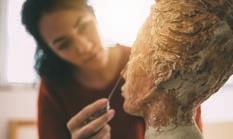
5 chess / a musical instrument / video games

6 comics / stamps / postcards

7 museums / galleries / cities

8 movies / live music / plays

9 fiction / comics / magazines
10 models / cakes / podcasts
5 5 Listen again and choose the correct option (A, B or C).
1 Which sentence is true?
A Both Max and Ellie have finished their exams.
B Ellie has finished her exams.
C Neither Max or Ellie have finished their exams.
2 Max
A is at the beach
B is going to the beach
C wants to go to the beach
3 On Friday Max
A is babysitting his little brother at home
B is busy early evening
C is meeting Ellie for a pizza
4 Max is planning to join Lisa and Ellie on Friday
A as soon as he can
B before eight
C at eight
Your take on it
1 Pairwork Do you practice any sport? Where and when? (At school, at the gym, a club... once a week, on the weekend, every day...)
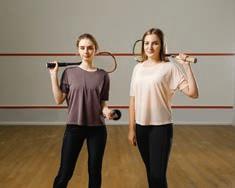
2 Look at the pictures and label the activities.
4 What does she do on Sunday afternoon?
5 What doesn’t Nadia like?
6 Where does Helen go snowboarding?
7 Where is Nadia’s dad taking her next week?
8 What do neither Nadia or Helen like doing?
5 Match the questions (1-6) to the answers (a-f).
1 What do you usually do at the weekends?
2 Do you have a horse?

3 Do you do any sports?
4 Is it difficult?
5 So you’re really busy with squash and ice skating?
6 What about football?

a n Yes, I play squash!
b n Yeah, and climbing too.
c n No, it’s a really fun game.
d n No, but I ride the same one every week.
e n No, I hate it!
f n I go horseback riding every Sunday.
6 Pairwork Talk about the sports you like and don’t like doing with your partner. Use the words in the box.
3 Watch the video and complete the table. what she usually does what she would like to do
Helen Nadia
4 Watch the video again and answer the questions.
1 How often does Nadia go horseback riding?

2 Does she have a horse?
3 When does Helen play squash?
cricket • baseball • ice skating • swimming • rugby horseback riding • climbing • diving • boxing squash
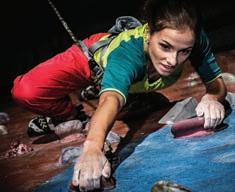

A I love going swimming
B No, I don’t like swimming. I prefer playing squash.
Life Skills: Know yourself
● Learn to be more self-confident
7 Pairwork Make two lists: one of things you feel confident about and another of things you don’t. Share your lists with a partner and give each other suggestions about what you can do be more self-confident. Try going round the ice rink with a friend first...

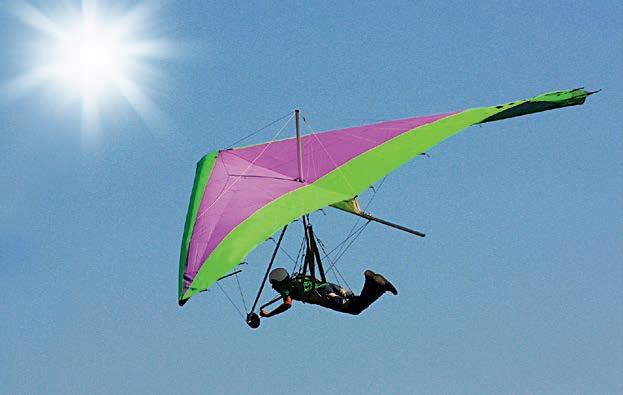
1 What do you know about Queenstown? Underline the correct altenative.
1 Queenstown is in the North Island / South Island of New Zealand.
2 It is near a lake / the sea
3 European explorers arrived in Queenstown in the 1820s / 1860s
4 Queenstown is a major center of adventure tourism / beach tourism
Reading
2 Read the text and check your answers.
Queenstown or Tahuna in Maori is in Otago in the southwest of New Zealand’s South Island and is the home of adventure! Built around Lake Wakatipu, there is everything that the adventure seeker wants to do – bungee jumping, tandem skydiving, whitewater rafting and jet boating, to name just a few of the adventure activities you can do at Queenstown’s ‘Natural Theme Park’.
European explorers first moved to Queenstown in the 1860s when gold was discovered in the Shotover River. It wasn’t until 1970 that Queenstown had its first real taste of adventure tourism with commercial jet boating. The jet boat, the invention of a New Zealand farmer called Bill Hamilton,
manages to travel in less than 3 cm of water and takes visitors on thrilling rides through the spectacular canyons around Queenstown. Whitewater rafting followed shortly after, then came a special rubber cord called the bungee jump. It is believed that more than 350,000 visitors have bungee jumped in Queenstown since the first jump in 1988.
Queenstown is now home to all types of extreme sports – canyoning, skydiving, hang-gliding, river surfing, snowboarding, quad biking, and many, many more. If you love doing adventurous things or you fancy trying something new and exciting, then Queenstown is for you!
Enjoy doing 360° spins on the Shotover Jet or why not try whitewater rafting? If you’d like to see some amazing scenery, then a half day rafting trip on Kawarau River is perfect. Fun and excitement is guaranteed!

For those of you who don’t mind doing something a bit more scary, then go skydiving. As the skydiving advert says ... Be brave, and if you’re not, then pretend to be ... no one can tell the difference! Skydiving from 15,000 ft takes a lot of courage but it’s a fantastic experience too.

Of course you can’t go to Queenstown without going bungee jumping. You can now try not only that but also ziprides and spectacular swings. Just imagine flying through the air!

3 CERT Read the text again and choose the correct answer (A, B, C or D).
1 Tahuna is the
A original European name of the city
B original Maori name of the city
C name of the jet boat company
D name of the county Queenstown is in
2 European people first came to Queenstown
A to walk in the mountains
B to do bungee jumping
C to find gold
D to go on vacation
3 The jet boat was invented .
A by a man from Paris
B by a Maori
4 In Queenstown, you can
A do only water sports.
B do land, air and water sports
5 CERT Pairwork Describe what you can see in the picture.
C by a tourist
D by a farmer
C go skiing in the summer
D go surfing in the sea
5 You can go skydiving if .

A you hate heights
B you love doing adventurous things
C you want to see the Kawarau River

D you don’t like scary things
4 6 You will hear a student talking about her hobby, bouldering. Complete the text with the missing information.
Bouldering is essentially 1 without a rope or a harness. But it’s not as 2 as it sounds if you’re with somebody who knows what they are doing. Indoor bouldering is good for beginners as indoor climbing gyms have 3 if you fall. Another good thing is that you don’t need to buy any 4 to get started. All you need is a comfortable 5 , a t-shirt and shorts or leggings.
People love going bouldering because it is a very 6 so you meet sporty people like you. Bouldering also gives you an excellent 7 better than traditional sports. But when you climb you also need 8 to help you find the best way up the wall.

● Which sport can you see?
● What are the people doing?
● What’s the weather like?
● What can you see in the background?
6 Read the email and choose the correct option (A, B, C or D).
Hey Louise, I’m finally 1 Queenstown and it’s just amazing! There’s so much to do! I really want 2 bungee jumping and jet boating, and maybe whitewater rafting but it looks 3 scary! It’s warm and sunny at the moment and I’m 4 by the lake. I can see someone hang-gliding down the mountain and a skydiver too. I’d like 5 hang-gliding if I have enough time.
I hope I manage 6 everything before I leave on Saturday! Take care. Speak soon, Alice
1 A at B in C on D to
2 A going B to go C to going D goes
3 A a few B much C a bit D many
4 A sat B sit C sitting D siting
5 A trying B try C to try D to trying
6 A to do B doing C do D to doing
7 CERT You are in Queenstown. Write an email to a friend. In your email you should:

● say where you are staying
● describe what you are doing
● explain which sport you’d like to try and which sport you don’t like at all
● ask your friend which sport activitis they would like to do together.
1 CERT Read the text and decide which answer (A, B, C or D) best fits each gap.
A study 1 2,000 adults in the UK found more than one third started a new activity during the 2 COVID-19 pandemic. Most chose one with some form of mindfulness to help them stay calm and many something 3 exercise. Other factors which impact the choice of activity are the cost, how easy 4 to get started and skills you can learn as a result.
The study 5 found that during the average week, people typically spend two hours and 14 minutes on exercise-based activities, an hour and 13 minutes baking and 1 hour and 28 minutes gardening. Other 6 lockdown activities are walking, biking or running in the countryside with or without your dog; wildswimming in lakes and rivers, and online Zumba, Pilates or yoga classes. For the less energetic new hobbies include 7 crossword and sudoku puzzles, playing board games or birdwatching. Or for the more creative amongst us: arts and crafts; painting and photography; or writing. Many people also decided to learn a foreign language, a musical instrument or a 8 skill such as DIY. So, what is your lockdown hobby?
1 A at B from C of D to 2 A last B near C past
3 A involves B involved C involving
4 A is it B it is C it’s
5 A also B all well C even
6 A famous B popular C preferred
recent
to involve
its
too
well-known
7 A doing B having C making D playing
8 A practicing B practice C practically D practical
2 CERT Complete the second sentence so that it has a similar meaning to the first sentence, using the word given. Do not change the word given. You must use between two and five words, including the word given.
1 Most people are OK with outdoor activities if the weather is good. MIND
People generally outdoor activities in fine weather.
2 My favorite pastimes are practical activities like gardening and baking. PREFER

I part in practical activities like gardening or baking.
3 To get fit you should do more exercise NEED
You in order to get fit.
4 My parents always make an effort with a big family barbeque every summer if they can. TRY
My parents a big family barbeque every summer if possible.
5 Would you like to go kayaking with me this weekend?
FANCY
Do this weekend with me?
6 I can’t come to the movies tonight because I said I’d look after my little brother.
PROMISED
I can’t come to the movies as I my little brother tonight.
Vocabulary & Listening
● Friendship and relationship expressions
● Collocations and phrasal verbs relating to relationships
Grammar
● Past simple
● Present perfect simple and continuous
● Subject and object questions
Language Skills
Reading: Are we born leaders?
Listening: A girl’s podcast
Speaking: Talking about family relations
Writing: Describing what has been happening
Video & Life Skills

Make a difference! Respect others:
● Consider other people’s needs and preferences
I’ve known Ben since primary school. We were in the same class and we immediately hit it off. These days we only spend time together on weekends or during the holidays because we go to different schools. This term we have both been studying hard for our exams, so we haven’t seen each other for a couple of months now. But we have been playing online computer games so we still keep in touch, even if it’s only virtually. We both love graphic novels and hip-hop, but the one thing we don’t see eye-to-eye on is football. He has always supported San Francisco 49ers and I have always been a New York Giants fan.
I had this very close childhood friend, Becky. But one day, after a silly argument, we stopped talking and fell out with each other and I missed her company. After two months, I met Jade at high school. At first I didn’t really take to her, and then one day we started chatting and we got along really well. We have been besties for four years now. We like doing the same things. We’re both big movie so we go to the movies every week and then hang out at our favorite café to discuss the movies after. But it is like we have watched two different movies because we never agree on them. I really like spending time with Jade because she’s a good listener and always makes me laugh. In fact, she’s the best friend I’ve ever had.
1 7 Match these expressions with the definitions. Then listen and check.

fall out (with sb) • get along like a house on fire get along well (with sb) • get to know (sb) hang out (with sb) • have a lot in common (with sb) hit it off (with sb) • keep in touch (with sb) see eye-to-eye (with sb) • take to (sb)
1 quickly become good friends
2 stay in contact with
3 agree on a subject
4 like a person instinctively
5 have a good relationship with a person
6 spend time together
7 learn about a person
8 break off with a person
9 have similar interests
10 enjoy a person’s company very much
Chloe and I have known each other for a long time because when we were little our moms were best friends. But we’ve only really got to know each other since we started going to the same youth club. I always have a good time when we hang out together. We both love skateboarding, so we have been teaching each other some new tricks. Because we enjoy spending time together and we hardly ever argue with each other, we have decided to spend a year travelling the world when we finish school. To help us find work during our gap year, Chloe has been learning Mandarin and I’ve been learning
2 Underline the correct alternative.
1 I don’t get at / along very well with my brother.
2 It’s easy to keep in / of touch with social media.
3 Carl and Luis fell off / out with each other and never spoke ever again.

4 On the weekend a big group of us hang in / out at the local park.
5 I have a lot in / of common with my twin sister.
6 I’m quite shy so I don’t always hit it off / on with people when I first meet them.
3 Pairwork Talk about your best friend. How long have you known them? Where did you meet? What did you think of them? I’ve known my best friend Helen since I was five…

4 Read the four blog posts. Who has met a friend through a relative?

When my sister introduced me to her boyfriend, Owen, we quickly realized we had a lot in common with each other. We both do the Japanese martial art, Jujitsu, and we have been training at the same gym for years, but we’ve never met there. We are also both really into Japanese food and culture, particularly manga comics. So, we get along like a house on fire! My sister, Megan, has been really good about our bromance, but I think she sometimes worries that Owen likes me more than he likes her! The two of them often hang out with me and my girlfriend on weekends which is cool.
Stative verbs, describing a state rather than an action, are not usually used in the continuous form. Stative verbs include: verbs for feelings and emotions (want, hate); verbs for senses (see, hear); verbs for thoughts and opinions (know, think); and verbs for possession (have, own).

6 Complete the sentences with the Past simple or Present perfect of the verbs in parentheses.
1 I (meet) Chris at a party last week.
2 My bestie (not speak) English when she was a child in Cambodia.
3 ‘ (see) the movie Parasite?’ ‘No, I (see) it.’
4 He (work) all over the world.
5 ‘How long (know) each other?’ ‘Since we (be) twelve.’
bestie a person’s best friend buff a person who knows a lot about a particular subject bromance two good friends like brothers
5 CERT Read the questions and choose the correct option (A, B, C or D). Which person…
1 didn’t like their best friend straight away?
2 disagrees about sports with their best friend?
3 has a very funny best friend?
4 is best friends with his sister’s boyfriend?
5 keeps in contact virtually?
6 loves everything Japanese?
7 ’s mom was friend with their friend’s mom as children?
8 plans to travel with their best friend after school?
Grammar: Past simple, Present perfect simple and continuous
I met Jade at high school four years ago.
Chloe and I have known each other for a long time. We have been teaching each other some new tricks. We use the Past simple when we give the exact time of the event in the past.
We use the Present perfect simple when we don’t mention a specific time in the past and there is a relationship to the present.
We use the Present perfect continuous to talk about actions which started in the past and are still true now.
Grammar reference p. 64
6 you (you / hear) the latest gossip? Jorge and Ana (fall out) for good.

7 Present Perfect simple or continuous? Underline the correct alternative.
1 I have always liked / have always been liking Sam Mendes’ films.
2 Let’s take a break! We’ve studied / ‘ve been studying all morning.
3 How long have you had / have you been having a pen friend?
4 Have you seen / been seeing Josh? We’ve waited / ‘ve been waiting for him for an hour!
5 You’ve wanted / ‘ve been wanting to try that restaurant for a long time. Shall we go tonight?
8 Read the first sentence and complete the second sentence with the Present perfect continuous of the verbs in parentheses.
1 You look very hot and dirty! (run) … you… ?
2 Lucy’s in a good mood! (text / new boyfriend) She…
3 Gareth speaks very good French. (live / Paris) He…
4 The band sounds great! (practice / lot)
It’s because they…
5 The children are bored because they haven’t been out! (rain / all morning) It…
9 Write an online message to a friend. Say what you’ve been doing since you last saw them.
Since I last saw you…

1 Pairwork Check you understand these words and expressions before you listen.
advertise • caretaker • apply for a job • employ publicity campaign • tourist board • barrier reef be stung by something • Jet Ski
2 8 Listen to an interview with Alex about doing the best job in the world. What was it and where did he do it?
3 8 CERT Listen again and choose the correct option (A, B, C or D).
1 How did Alex get such an amazing job?
A He applied for it and was selected.
B He was in the right place at the right time.
C He won a competition.
D Nobody else wanted it.
2 Who employed him?
A The Australian government.
B The Australian Tourist Board.
C The British government.
D The Queensland Tourist Board.
3 How did he travel along the Great Barrier Reef?
A by boat
B by car
C by seaplane
D in all of these ways
4 What was he paid to do?
A To do nothing at all.
B To get tourists to visit the island.

C To record and publish everything he saw.
D To save the island’s ecosystem.
5 How many tweets did he post in six months?
A 47 B 60 C 1,500
D 2,000
6 Which of these things almost killed him?
A a bad injection
B a jellyfish sting
7 What happened in 2020?
Grammar: Subject and object questions
C a Jet Ski accident
D a shark bite
A He and his wife had a baby.
B He and his wife traveled overland from Singapore to London.
C He got the second-best job in the world.
D He ran 19 marathons in one year.
Subject question
Who employed you? Object question How did you get such an amazing job?
Subject questions ask who or what does something. Who or What are the subject of the sentence.
Object questions ask what someone did or who to. We use the auxiliary verb + subject + main verb.
4 Read these questions and write S (subject) or O (object).
1 Who just messaged you?
2 Which brother took the photo?
3 What did the message say?
4 What happened?
5 Who was there?
6 Who did you speak to?
5 Choose the correct questions.
1 A Where did you go on vacation?
B Where went you on vacation?
2 A Who else did apply for the job?
B Who else applied for the job?
3 A Which country did you visit?
B Which country visited you?
4 A Who do you look like in your family?
B Who look you like in your family?
5 A Which did come first: the chicken or the egg?
B Which came first: the chicken or the egg?
6 A What did wake you up?
B What woke you up?
6 Critical Thinking Discuss these questions with your partner.
● What are the advantages and disadvantages of being alone in a remote place?
● What would you miss/enjoy most about being so far away from home?
1 Read the sentences and complete the rules with these words.
be • did • didn’t • -ed • has haven’t • -ing • past participle
My sister introduced us. We immediately hit it off. I didn’t really take to her. Did you?
For the Past simple affirmative we add
1 to the base form or we use the irregular past form. For the negative form we add 2 and for the interrogative form we add 3 .
I’ve known Ben since primary school. We haven’t seen each other for a couple of months. How long have you known him?
For the Present perfect simple we add
4 / have / hasn’t / 5 to the 6 of the verb.
We have/haven’t been studying hard. Chloe has/hasn’t been learning Mandarin. What have you been doing?
For the Present perfect continuous we add has / have, the past participle of the verb
7 and the 8 form to the base form of the verb.
2 Choose Present perfect simple or continuous to complete the questions.
1 Have you always
A liked sports? B been liking sports?
2 Have you … the drama Noughts and Crosses on TV over the past few weeks?
A watched B been watching
3 You look good! Have you … a lot?
A worked out B been working out at the gym at the gym
4 Something smells good! What have you … all morning?
A made B been making
5 How long have you … your best friend?
A known B been knowing
6 I’ve almost … this book. It’s great – you should read it!
A finished B been finishing
7 Have you A waited long? B been waiting long?
3 Complete the conversation with these words.
forgot • got up • has been trying have you been doing • have you taken • haven’t haven’t emptied • let
Mom What 1 ?
George Not much! I only 2 an hour ago.
Mom So you 3 the dishwasher.
George No, I 4
Mom 5 the dog for a walk?
George I 6 it out into the yard Does that count?
Mom Not really as it 7 to get back in ever since!
George Oh no! I 8 all about it!
4 Match the questions with the answers. Which are subject and which are object questions?
1 What happened yesterday?
2 Who did you go with?
3 What did you do?
4 Who opened the fair?
a n My friends.
b n The head teacher.
c n There was a school fair.
d n We looked at all the stands.
5 Complete the online chat with the correct form of the verbs in parentheses.
Jay Hi! Have you been 1 (do) anything interesting this evening?
You I’ve just 2 (watch) episode 1 of series 3 of Killing Eve
Jay No spoilers! I haven’t 3 (see) it yet!
You OK, but you do remember lots of people 4 (die) in the last series…
Jay Yes… but what 5 (happen) to Eve and Villanelle? I can’t remember now!
You So, do you remember who 6 (shoot) who in the last episode?
Jay Did Villanelle 7 (try) to kill Eve?
You You haven’t 8 (forget) everything after all!
1 Match these expressions with the pictures. break up with somebody • pick somebody up cheat on somebody • date somebody fall for somebody • make up
3 Put these words in the correct category.
acquaintance • boyfriend • brother-in-law classmate • colleague • employee • employer • ex family friend • fiancé • fiancée • apartment mate • girlfriend half-sister • neighbor • relative • school friend stepfather • teammate • tutor • workmate
4 Complete the sentences with words from exercise 3.
1 It’s embarrassing when I see my , John, when I’m out with my new , Joe.
2 Our next-door is a because we’ve known her since we were little.
3 My mom and her second husband, my , had a baby girl, who is my
4 A lot of my football are also my because we practice opposite the school.
5 Our is really cool, she always treats my and me as equals in the office.
6 I have so many that some of them are more like than family.
5 9 Listen to five people. What kind of relationships are they talking about?
A relationships with family members


B romantic relationships


C relationships with acquaintances
D relationships with people in authority
6 9 CERT Listen again. Choose from the list (A-H) what each speaker says. Use the letters only once. There are three extra letters.
A I didn’t want to move to another place.
Dear Marianne,

About a year ago I met and 1 a really lovely girl called Polly. I 2 her and we 3 for a while and everything was amazing. Then one day she 4 me – I was devastated when I found out so I 5 her.


But I can’t stop thinking about her. I really want to 6 and start again. What should I do? :( Thomas
B I knew they would disagree with my choice.
C I was worried about the cultural differences.
D I went too far in shocking them this time.
E It was hard to start, but they got used to it.
F They wouldn’t let us hang out together.
G We decided to wait and see what happened.
H We didn’t have much in common.
n Speaker 1
n Speaker 2
n Speaker 3
n Speaker 4
n Speaker 5
Your take on it
1 Pairwork Why do people volunteer? Use these expressions to help you.
make a difference • make friends make sb feel good • make sb smile • make sb happy
2 Complete the sentences from the video with the correct form of the expressions from exercise 1. More than one answer is possible.
1 Josh Coombes wants to a small to people’s lives.
2 Helping others is good for the community and you too.
3 Volunteering lets Josh and Jade help people, and also meet people, and
4 Speaking to people, asking them about their day, will people
5 Helping people has Josh .
3 Watch the video and answer the questions.
1 What is Josh’s job and how does he volunteer?
2 What’s the name of Josh’s project and when did he start it?
3 How does he share his volunteer work on social media?

4 What is Jade’s job and how does she volunteer?
5 What is a big part of Josh and Jade’s work?
6 What is Josh’s advice about helping people?
4 Watch the video again and match the two halves of the sentences.
1 Josh volunteers
2 He wants to show people that helping others
3 Volunteering lets Josh and Jade
4 Even conversations can make
5 Just stop and just see
6 You don’t have to solve
7 It’s really about
8 It’s about what you
a n a positive difference to someone’s day.
b n connecting with people.
c n every one of their problems.
d n get in return.
e n help people.
f n his time and skills.
g n how someone’s doing.
h n is good for the community.
● Consider other people’s needs and preferences
5 Pairwork Think of a situation when someone has tried to help you. What did they do? How did it make you feel? Were you happy they tried to help you? Use these words and expressions to tell your partner about it.
afraid • angry • ashamed • embarrassed • emotional inferior • irritated • nervous • pleased • relieved shocked • surprised
A teacher once offered to help me catch up with my schoolwork. At first I felt like I was inferior to the other students and a bit embarrassed, but then I felt pleased because…
6 At the end of the video the narrator asks: ‘Do you think there is something you could give to your community?’ Discuss your ideas in small groups. In your discussion, consider:
● what people in your community might need
● what you can do to help meet this need
● the best way of doing this, while respecting the people you are helping
● how you felt when somebody helped you (what you liked/didn’t like)
● what you could get/learn from this experience
7 Present your ideas to the rest of the class. We are going to volunteer as shoppers for vulnerable people in our community…
8 Now vote for the one you like best and explain why. Remember that it should consider other people’s needs and preferences.
1 Look at the title of the article. What is your answer to the question?

People have often thought that our position in the family shapes who we become. 1 Examples of first-born children you can read about online include: European leaders Angela Merkel and Emmanuel Macron; US Presidents Bill Clinton and George W. Bush; Sheryl Sandberg of Facebook, formerly Google; Marissa Mayer of Lumi Labs, formerly Yahoo!; Jeff Bezos of Amazon; and Richard Branson of Virgin.

Other research has shown that the gender of siblings can also affect our personalities. One study found that men with older sisters were less competitive.
4 According to recent British research, people closer in age to their older sibling tended to be more outgoing and less anxious. Whilst another study found that siblings who played together developed a good understanding of people’s feelings.
It is also important to remember that sibling relationships are only a small part of family life.
5 But what about only children, who grow up without siblings? Some research in China, with large numbers of one-child families, found that only children aren’t very competitive and don’t like taking risks. 6 This could be because they spent more time alone with their imagination and because their parents have more time to help them develop this creativity. Examples include: singer John Lennon; actor Daniel Radcliffe; magician David Copperfield; and mathematician Ada Lovelace.
But several recent studies don’t agree that birth order decides our personalities. 2 And they found no real link between birth order and personality traits. Another popular idea is that last-born children are more likely to take risks, but there is no real evidence of this either. Although famous examples include tennis players Andy Murray and Serena Williams; and actor Eddie Murphy.
However, it is hard to imagine that when siblings play, fight, fall out and make up again, this does not have any influence on their characters or lives. 3 So, learning to be emotionally resilient, empathic and socially skilled with a sibling you get on well with can give you obvious advantages in many careers, such as sales, teaching or journalism.

2 Read the text and put these famous people in the correct category.
Ada Lovelace • Andy Murray • Angela Merkel
Bill Clinton • Daniel Radcliffe • Eddie Murphy
Jeff Bezos • John Lennon • Serena Williams
3 CERT Read the text again. Six sentences have been removed. Choose from the sentences (A-G) the one which fits each gap (1-6). There is one extra sentence which you do not need to use.
A And another important factor could be the age of your siblings.
B In fact scientists suggest it is how well you get on with your siblings that is important, not your position in the family.
C Because that would make it even more difficult to become a leader.
D They analyzed whether we are more hard-working or lazy, dominant or timid depending to our position in the family.
E However in another study only-children were found to be more creative.
F In general people tend to have better relationships when they grow up in a happy and stable home.
G The Internet is full of articles saying that first-born children are more likely to become leaders.

In an oral interview, remember to:
● be familiar with the topics (you, your habits, hobbies, plans, etc.)
● learn key words for these topics
● don’t learn things parrot-fashion – be interactive
● use the grammar of the question in your answer
● don’t be afraid to say: ‘Please could you repeat that? / Could you say that again, please?’
4 CERT Pairwork Talk about your relations with your family.
● What position do you have in your family?
● Does this affect your personality? Why?/Why not?
● Who are you most like in your family?
● Who do you get on best with in your family?
● What activities do you usually do as a family?
5 10 Listen to Jessica’s podcast. What is it about?
6 10 Listen again and decide if the sentences are true (T) or false (F).
1 Jessica’s grandad has been painting.
2 Her grandma has been learning Spanish from an app.
3 Her dad has been growing vegetables in the garden.
4 Her mom hasn’t done any yoga for ten years.
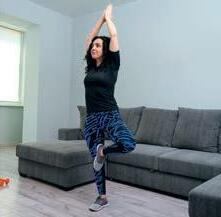
5 Her brother has learned to play the guitar very well.
6 She has been making a movie.
7 Have you ever been isolated from the rest of the world for a long time? What did you do? How did you feel? How has your life changed after the experience?
I spent two months in isolation not long ago because of a pandemic…
How Technology Has Changed Our Relationships Technology has become a central part of our everyday lives. We use it for keeping 1 touch, for hanging out, for dating, and even for falling 2 , making up and breaking up with people. We appear to be very well connected thanks to our hundreds of friends and followers on 3 media, but in reality we only interact with a few in our daily lives and have never even met others.
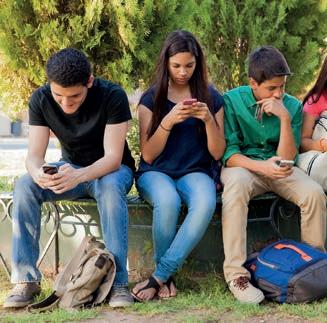
Yet strangely, many of us have 4 to share very personal details of our lives with them. Take internet dating, which has become very popular in 5 years. In busy modern life, some people find it is the best way to meet and socialize with the ‘right’ people. The irony is that we sit at home trying to meet these new people, and we haven’t left the sofa! What 6 using BFF (best friends forever), ROFL (rolling on floor laughing) or ILY (I love you) mean? Have we 7 how to have a real conversation and interact properly? Have we lost the courage to allow others to 8 to know our true selves, preferring to hide behind our carefully created avatar-egos?
1 A at B in C of D to
2 A of B off C on D out
3 A social B sociable C society D societies
4 A chose B chosen C choose D choosing
5 A last B next C recent D these
6 A are B do C does D is
7 A been forgotten B been forgetting C forgot D forgotten
8 A chat B get C have D see
2 CERT Read the text. Use the word given in capitals at the end of some of the lines to form a word that fits in the gap in the same line.
Friends was an 1 popular American sitcom about six friends, which ran for 236 episodes from September 1994 to May 2004. Twentyfive years later, the show hasn’t just lasted, it has 2 , reportedly earning $1 billion for Warner Bros every year. Along with The Office and Grey’s Anatomy, it’s one of the most watched shows, with 3 around the world spending 54.3 million hours watching it in 2018. With numbers like that, it’s not hard to see why the 4 service reportedly paid $80 million to keep it.

The show’s continued 5 isn’t just down to its original devoted fans. It’s also due to a new and younger binge-watching Generation-Z around the world who see themselves in its 6 and situations. One superfan who has streamed the entire series ten times — as a teenager, a college 7 , and now as a married person — said: ‘All the characters are unique. Depending on the situation, you’ll find yourself 8 to all the different characters at different points. In the end, you connect with the entire cast.’
Maybe this is because Friends reveals a simpler time, before apps, social media and smartphones dominated our attention, time, and 9 . The show takes place in a universe 10 insulated from the darker outside world, a rarity for a TV show these days.
Choose the correct option (A, B, C or D).
1 Where ? Near the city center.
A are you from B are you going C do you go
2 Harry likes TV series on his tablet.
A watch B watched C watches
3 Did she have children?
A any B no C much
4 They from New York originally.
A arrived B been C came
5 We going to get a pet dog this summer.
A ’m B ’re C ’s
6 What is the animal on the planet?
A dangerous B dangerously C more dangerous
7 Food be easy to produce with climate change. A may B might C will
8 Wild weather is now happening on the planet.
A anywhere B everywhere C nowhere
9 If you get this job, challenging.
A it is B it will be C you are
10 You only be 16 to drive a car in some states in the US. A have to B don’t have to C must
11 Have you decided a gap year before the university?
A to take B takes C taking
12 I haven’t swum in the sea this summer
A already B just C never
13 Lucy to Hawaii three times on vacation.
A has been B has gone C was
14 ‘How long have you known Katie?’ ‘Since .’
A a long time B four months C we started school
15 You _____ turn off the lights before you leave a room.
A must B mustn’t C ought
16 People use the car every day: they can walk or cycle.
A doesn’t need to B don’t need to C need to
17 Which video game just now?
A was you playing B were you playing C played
18 This is the college I did my training.
A where B which C who
19 Artificial Intelligence in lots of different areas of technology.
A are used B is used C was used
20 Netflix in 1997.
A is started B are started C was started
do you live
watching
some
went
’ve
most dangerous
won’t
somewhere
you will be
take
went
ought not to
needn’t
did you play
that
were used
were started
1 Read the text and underline the correct alternative.
Have you ever felt 1 bored/excited by the routines of your every day life? You know: school, work, sports practice and other chores or 2 competitions/events Why not try doing something new for 30 days? This is the idea of American 3 bookwright/playwright and filmmaker Morgan Spurlock. The idea is actually 4 difficult/simple. Think about something you’ve always wanted to add to your life and try it for the 5 next/ past 30 days.
As well as learning a new skill, you will find that life is more 6 hard-working/rewarding and you will make 7 permanent/ temporary memories. Thing you could choose to try include: cycling to school or to work, 8 making/taking a photo every day for a month, climbing a 9 mountain/river, developing an app, or even writing your first novel.
When you make small, 10 stressful/sustainable changes, they are more likely to continue. But there’s nothing wrong with big 11 challenging/confident things. In fact, they’re a lot of fun and you can 12 save/share them with all your friends!
2 Complete the conversation with the missing words.
Interviewer What simple things

1 we do to be healthier and happier?
Expert By eating well, managing stress and exercising, your brain

2 get more blood and oxygen.
Interviewer So what do you 3 by eating well?
Expert Some of my favorite things…
I 4 eating chocolate and blueberries, drinking tea and wine.
Interview Really? And what do I 5 to do to manage stress?
Expert You 6 to avoid eating too much fat and sugar, smoking or drinking too much alcohol.
Interview Getting a good night’s sleep 7 be important too. Right? I never get enough sleep!
Expert I’m 8 to hear that because it is really important. Have you tried mindfulness?
Interview Can you 9 what you mean?
Expert By focusing your attention in the present, accepting any feelings or thoughts, you’ll
10 up feeling really relaxed.


1 Write the words or phrases from the box under the pictures.
jewelry making • astronomy • online gaming flying a drone • photography • collecting stamps camping • hang out with friends



3 Find 8 words related to sports equipment in the word search.
2 Complete the sentences with a word or phrase from exercise 1.
1 Everyone thinks they are good at these days!
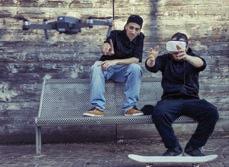
2 The next tournament has a $100,000 prize.
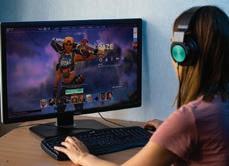
3 I love because you can learn so many things about the universe.
4 We can’t go if it’s too windy!
5 At the weekend, I like to at the sports center.
6 I really want to improve my skills – I hope I can sell my creations one day.
7 We need to buy a new tent before we go : the other one has a hole.

8 is still fashionable among youngsters.
4 Read the definitions and write the names for sports places.
1 a large open space with seats around it, used for playing and watching sports
2 an area of water that is for people to swim in
3 a grassy area of ground where sports like football are played
4 an area for playing sports like badminton or tennis
5 a wide circular path made for running
6 an indoor area of ice for skating or playing sports like ice hockey
7 a circuit for cars’ or motorbikes’ races
8 a large, grassy area with obstacles and lakes for playing golf
5 Match the equipment with the sport.
1 boxing racket
2 cricket net
3 cycling mat
4 climbing kit
5 running helmet
6 surf goggles
7 swimming gloves
8 tennis board
9 volleyball bat
10 yoga rope
Phrasal verbs: Free-time activities
6 Underline the correct alternative.
1 For the weekend I’m planning to chill out / relax out at picnic in the park.
2 Can’t wait so see my best friend: we have a lot to catch up on / catch out on!
3 My sister set up / took up a comedy group.
4 ‘Why don’t you come round / go round this evening? We’re having a movie night!’
5 I’m very interested on / interested in flying drones, lately.
6 ‘We are going to get together / hang together for a pizza, tonight; do you want to join us?’
7 Sheila has taken down / taken up drawing comics as a new hobby.
Free-time
7 Underline the correct alternative.
1 My friends and I are all competing in an online gaming / chatting tournament. We’re a super team!
2 To improve my English, my teacher suggested model making / writing a blog
3 They say crocheting / squash is one of the most relaxing activities ever!
4 I’m going to the store to buy more paper for my new hobby. I’ve just started painting / quilling
5 I subscribed to an online gaming / model making course. Now I have my own collection!
6 Our favorite place is The Clubhouse, where we can play board games / quilling.
8 Complete the sentences with the words from the box.
college • amateur • endurance • outdoor competitive • individual
1 Tim wants to take part in the next marathon, so he’s undergoing training.
2 The final results of the competition will consider the best scores.
3 According to a survey, in many schools facilities for sports are inadequate.
4 The Government has recently increased the funds for sports.
5 Sometimes the line between professional and sport is not very clear.
6 The local soccer team is proving itself to be a very one.
9 Look at the pictures and complete the sentences with the words from the box.
winter • BMX freestyle • paragliding • racing scuba • racquet


1 Deb has always loved : she wants to be a race driver!

2 Did you know became an Olympic sport in 2021 edition?
3 sports are my favorite: I love snowy mountains!

4 sports are games in which players use a type of bat to hit a ball or other object.

5 is considered as an extreme sport.
6 My next holiday will be a diving one!

10 Write six of your preferences about hobbies and leisure activities. Use the expressions from the box.
I love... • I hate... • I’d like to... • I can’t stand... I enjoy... • I don’t mind...

Revision: Present simple and continuous
1 Complete the captions under the pictures with the correct form of the verbs in parentheses.
2 Use the prompts to write sentences. Put the verbs in the correct form.
1 we / rock climb / today
2 Jane / always / play / soccer / on Fridays
3 Ruby / not like / trap music
4 they / watch / the football / at the moment / ?

5 my family / live / in Chile / this year
6 people / usually / play / polo on horses
1 Here we (kayak) in Slovenia!

2 This is what Steve (do) at weekends!
3 Complete Harry’s message with the correct form of the verbs from the box. be (x2) • do • know • not play • sit watch • wear • win • bat
3 you all (watch) the match at the moment?
4 Every summer at the end of term we (hang out) at the beach for an evening!
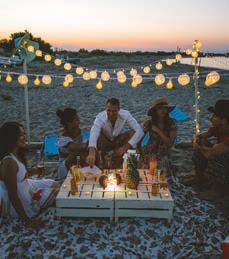
Hi Carla, How are you? I 1 it’s Saturday, but I 2 computer games today. I’m at a baseball match with my sister! We 3 in front row seats and we 4 the US against Japan. I 5 a big jacket, scarf and a hat because it 6 always cold outside in the evening. The game 7 really exciting. The US 8 , but the game is very close. Oh, it’s a home run for Japan! And another one! The US 9 now! So what 10 you today? OK, time to go! See you soon! Harry
Revision: Stative verbs

4 Underline the correct alternative.
1 Why are you liking / do you like climbing so much?
2 Dad’s not understand / doesn’t understand cricket, but he’s loving / loves tennis.
3 I’m not wanting / don’t want to have a fight about it!
4 ‘Are you thinking / Do you thinking about our weekend away?’ ‘Yes, I am / do.’

5 I (make) some new earrings! anybody (want) to buy some?
6 I (paint) portraits. you (fancy) having your portrait done?
5 We are smelling / smell cake! Is Mom baking / Does Mom bake again?
6 My friends are hating / hate playing cards!
5 Complete the questions with the correct form of the verbs in parentheses, infinitive or -ing form.
1 What kinds of music do you enjoy (listen to)?
2 Do you consider yourself (be) a good student? Why?
3 Do you fancy (try) a new hobby over the summer?
4 How do you choose (spend) your free time when you aren’t studying?
5 Where do you prefer (do) your homework? At home or in the library? Why?
6 Do you like (have) music playing while you’re studying? What type?
6 Answer the questions in exercise 5 so that they are true for you.
9 CERT Read the text and decide which answer (A, B, C or D) best fits each gap.
Hi, I’m Kartika and I’m 15. I 1 dance music and I love 2 ! Even if I 3 very good at it, I practice every day and it’s great fun.
I 4 online music sites all the time, but now I have made my own Spotify dance 5 , so it’s almost impossible I forgot 6 a song.
I often remember 7 a music video online, when I 8 _____ the song. I used to try 9 _____ dance moves from friends or from the videos, but I’ve stopped 10 _____ that because my mom has promised 11 me in a real dance school!
I’m sure I’ll be a dance star, one day. Do you fancy 12 _____ my autograph?

7 Underline the correct alternative.
1 Don’t forget going / to go to the bank.
2 The teacher asked the students to stop / stopping and think before answering.
3 I forgot telling / to tell you Sarah called.
4 I promise I’ll remember to lock / locking the door.
5 My sister stopped eating / to eat meat last year.
6 Try drinking / to drink milk and mint. It’s delicious!
7 Quiet, please! I’m trying to explain / explaining!
8 I remember leaving / to leave my keys in the car.
8 Use the prompts to write sentences. Put the verbs in the correct form.
1 the teacher / talk / to the class / at the moment
2 Eliza / go / swimming / every weekend
3 we / go / to the squash match / today
4 students at this school / not / wear / a uniform
5 you / have / lunch / now / ?
6 I / usually / not go / to the theater
1 A enjoy B enjoys
C enjoying D to enjoy
2 A breakdance B breakdances
C breakdancing D to breakdance
3 A ‘m not B ’m not being
C don’t be D don’t to be
4 A ‘m using B to use
C used D use
5 A songlist B playlist
C music D collection
6 A to downloading B download
C downloading D to download
7 A see B sees
C seeing D to see
8 A hear B to hear
C listen D listening
9 A copy B to copy
C copying D copied
10 A do B doing
C make D making
11 A enrolling B enrolled
C to enrolling D to enrol
12 A getting B to get
C get D got
1 Match the activities from the box with the pictures.

Are you having a staycation this year? Here are some ideas for things which are fun and active, which you can do without going away. Why not choose a weekly theme for your holidays. You can try holding your own Olympic Games with your friends, family or street. Everybody can compete at different sports, representing different countries. Or if you can’t stand playing sport in the sun, how about holding a board games Olympics instead? You could have competitions of chess, checkers, Monopoly, snakes and ladders, or any games you like.
You can also decide to have a music week when everybody hangs out in the clothes and hairstyles of a particular decade (70s, 80s, ‘90s) and you try dancing to the music together. You could even offer to hold a mini music festival for your friends!

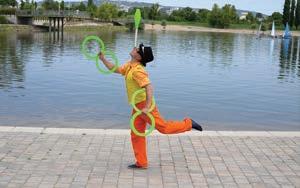
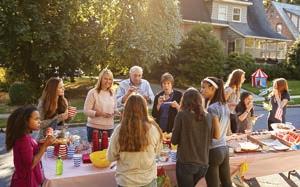
Have you ever tried geocaching? You need to use a mobile phone to follow GPS coordinates that you download online and find secret locations and treasure. Or you might prefer to make and follow your own scavenger hunt with your friends. Work in small groups and write clues around your neighborhood for the other teams to follow.
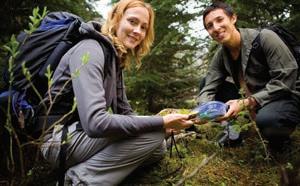
Or if the weather is bad, who doesn’t love getting out of an escape room? You can make your own at home in any room in the house, using clues, locks, everyday objects and puzzles to test your mind and teamwork to escape.
If you want to put teamwork to the test, but using your body this time, build an assault course in the yard or local park with ropes, tires, blankets and some water to cross in an individual or team race. Alternatively, you might fancy holding your own street party with long tables, food and drink, music and a garage sale to sell all the things you don’t want to keep anymore.
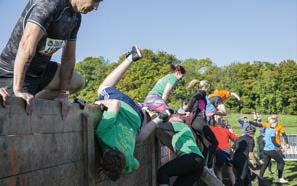
Or why not decide to learn something new this vacation? Painting, baking, graffiti, photography, blogging, playing the guitar, circus skills or creative writing? You don’t have to join a class, just find someone who knows how to do the activity and offer to teach them something you can do in exchange. You could also join an online class and learn yoga from someone in Tibet or golf from somebody in Scotland. But summer doesn’t have to be all about fun, you can also help your neighbors in their yard or do some shopping or cleaning for them or volunteer at a kids’ party.
So go on, and give some of these fun and valuable activities a go and don’t forget to turn your phone off!
2 CERT Choose the correct answers.
1 What can you do if you don’t want to be too energetic?
A Hold Olympic Games.
B Play board Games.
C Play music.
D Stay at home.
2 What do you need for a music week?
A To play in a band.
B To have a haircut.
C To hang out with your friends.
D To go shopping.
3 For which of these activities should you remember to bring your mobile phone?
A Assault course.
B Escape room.
C Geocaching.
D Scavenger hunt.
4 What should you offer at a street party?
A Someone to write clues.
B Something new to try.
C Something to jump over.
D Somewhere to sit.
5 How can you learn something new for free?
A By exchanging skills.
B By going online.
C By going to Scotland.
D By talking to people in Tibet.
6 Why is summer not all about having fun?
A Because you can volunteer in your community.
B Because you have to help out at home.
C Because you need to find a summer job.
D Because you should study.
3 1 You will hear Jenny talking about wild swimming. Who does she do it with?
4 1 CERT Listen again and complete the missing information.
They meet 1 a week, early in
all 3 .
It’s a great way to 4 and
together.
They also 6 the Great Ohio River Swim, which happens once a year 7 .
It’s about one 8 (or about 40 lengths 9 ).
The main reason for The Swim is to show that the water is 10 for people
5 Read these two messages. What is the relationship between the people writing and receiving the messages?
Please remember to bring sports clothes and sneakers, a towel, a bottle of water, and a change of clothes with you. You don’t need to prepare any lunch as there are sandwiches and fruit provided. Just let us know if you have any dietary requirements. Thank you.
RSVPHow are you going to the sports camp today?
Wanna ride with me and my sister?
Don’t forget to bring your spikes!
6 Read the two messages again and answers the questions. Which message...
1 gives a list of things you need?
2 asks somebody for something?
3 offers something to somebody?
4 makes a request for more information?
5 asks about travel arrangements?
6 provides information about food?
7 Write a reply to both messages. Use the writing tips to help.
● Use the correct style (more formal or less formal) depending on who you are writing to
● Be short, informative and provide all the information requested
● Acknowledge receipt of message with thanks if appropriate
● Add any questions or additional relevant information